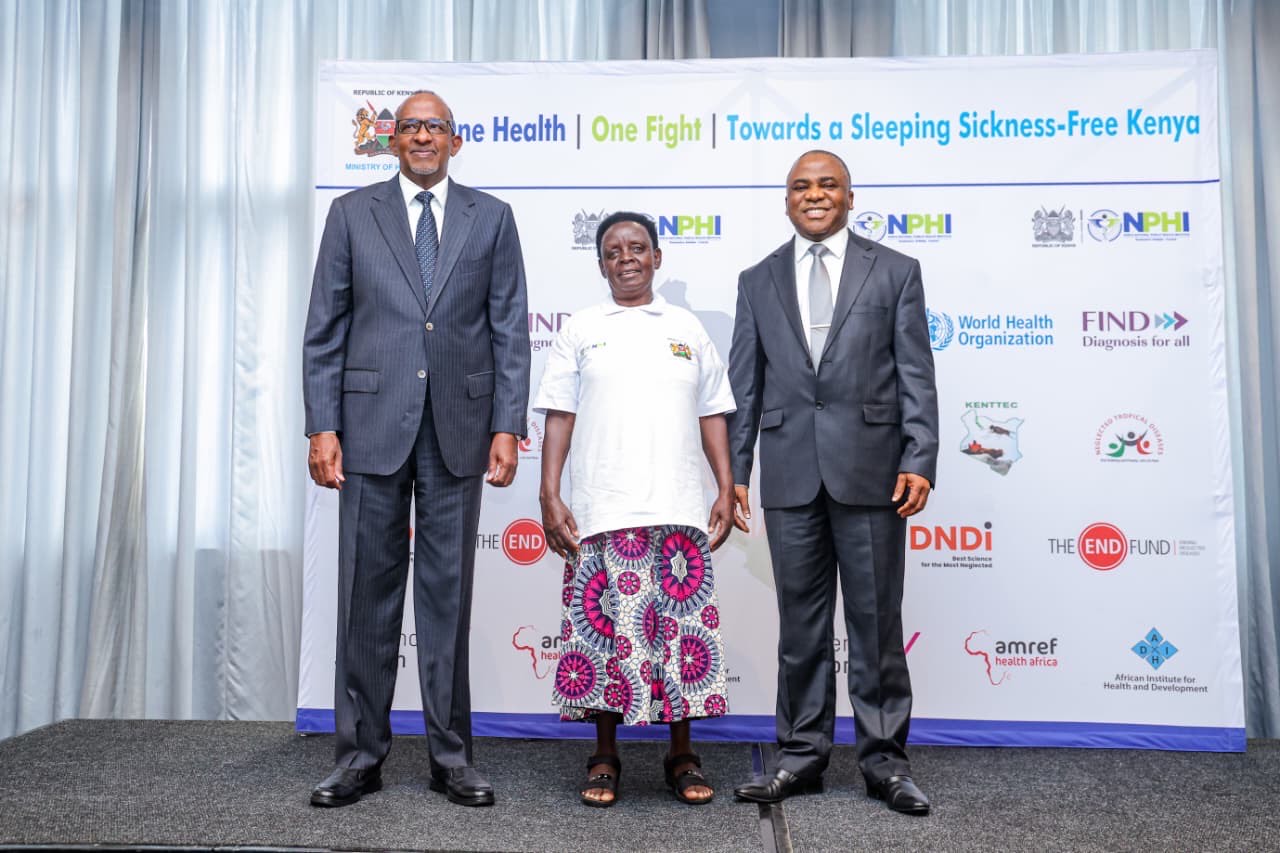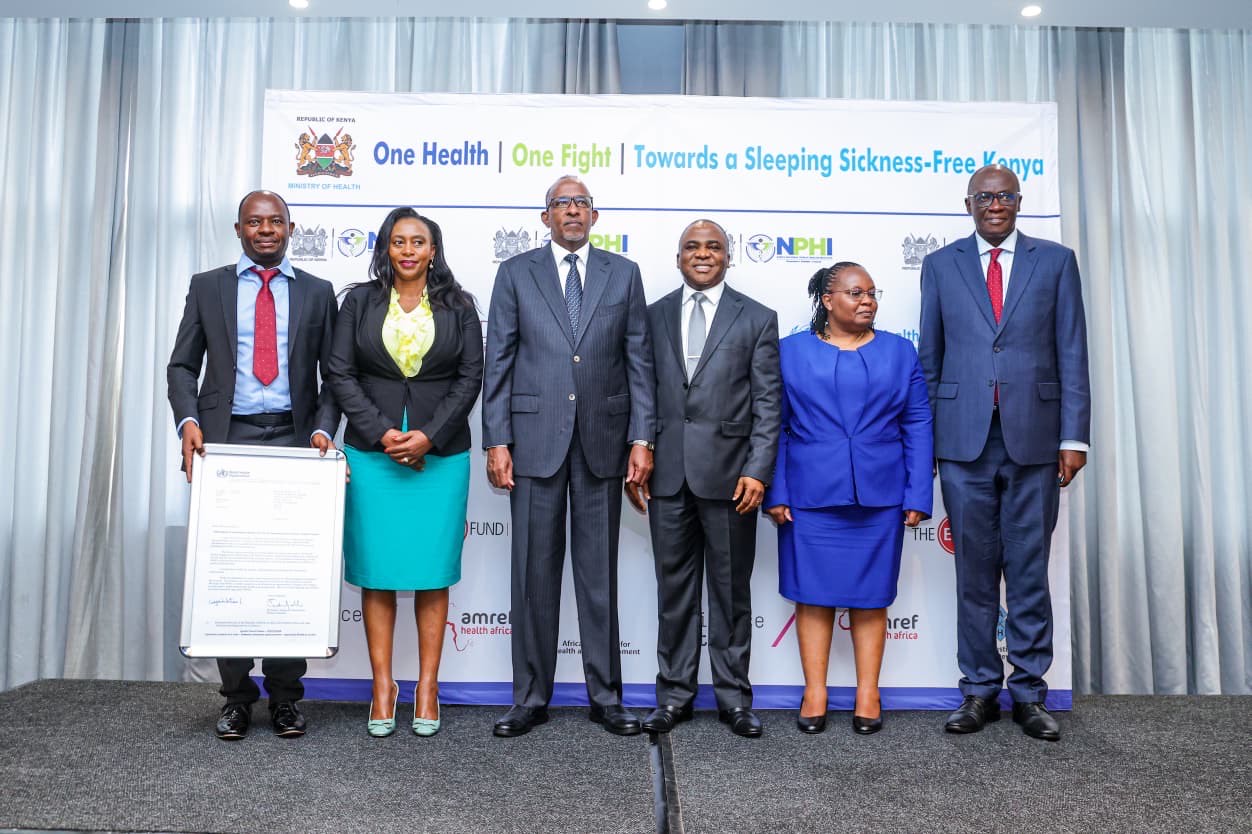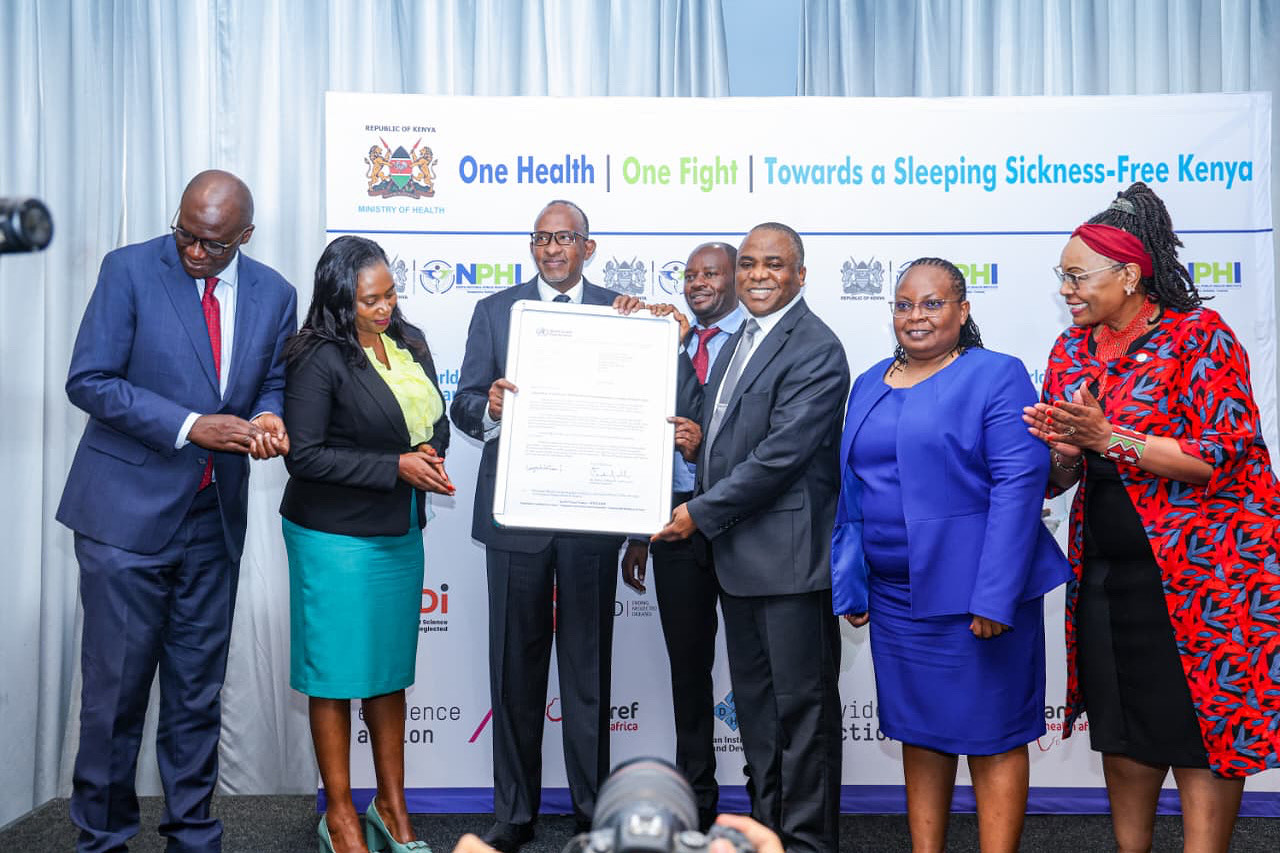Kenya Validated by WHO for Eliminating Sleeping Sickness as a Public Health Problem
Nairobi, KENYA - - Kenya has reached a landmark public health milestone, with the World Health Organization (WHO) confirming the elimination of Human African Trypanosomiasis (HAT), or sleeping sickness, as a public health problem. This achievement — decades in the making — reflects the nation’s capacity to defeat neglected tropical diseases through strong policy, decisive leadership, scientific excellence, and community-driven action.
Health Cabinet Secretary Hon. Aden Duale presided over the ceremony, held under the theme “One Health | One Fight | Towards a Sleeping Sickness-Free Kenya.” Since the first recorded case in 1901 and the first documented diagnosis in Samia in 1942, HAT has plagued communities in Busia, Bungoma, Siaya, Homa Bay, Migori, and Narok counties, putting more than seven million people at risk.
Kenya has reported zero indigenous cases since 2009, and WHO’s 2025 validation stands as proof that investment, coordination, and collective effort can overcome even the toughest public health challenges. Hon. Duale commended the dedication of health workers, the national expert committee, the livestock and wildlife sectors, technical partners including WHO and PATTEC, and the vigilance of local communities.
The CS emphasised that HAT elimination demonstrates the power of primary health care — rooted in community, driven by science, and backed by government commitment — and called for sustained surveillance, early detection, strong community engagement, continued investment in vector control, and full integration of HAT services into routine primary health care.
Linking this milestone to the Ministry’s broader Emergency Preparedness and Response agenda, Hon. Duale said the infrastructure used to eliminate HAT must now be scaled to prepare for future threats, including disease outbreaks, cross-border health crises, and pandemics. Kenya is also contributing to global deliberations on the Pandemic Treaty and investing heavily in the National Public Health Institute (NPHI) to strengthen surveillance, epidemic intelligence, and rapid response capacity — connecting community-level detection with national and global systems.




